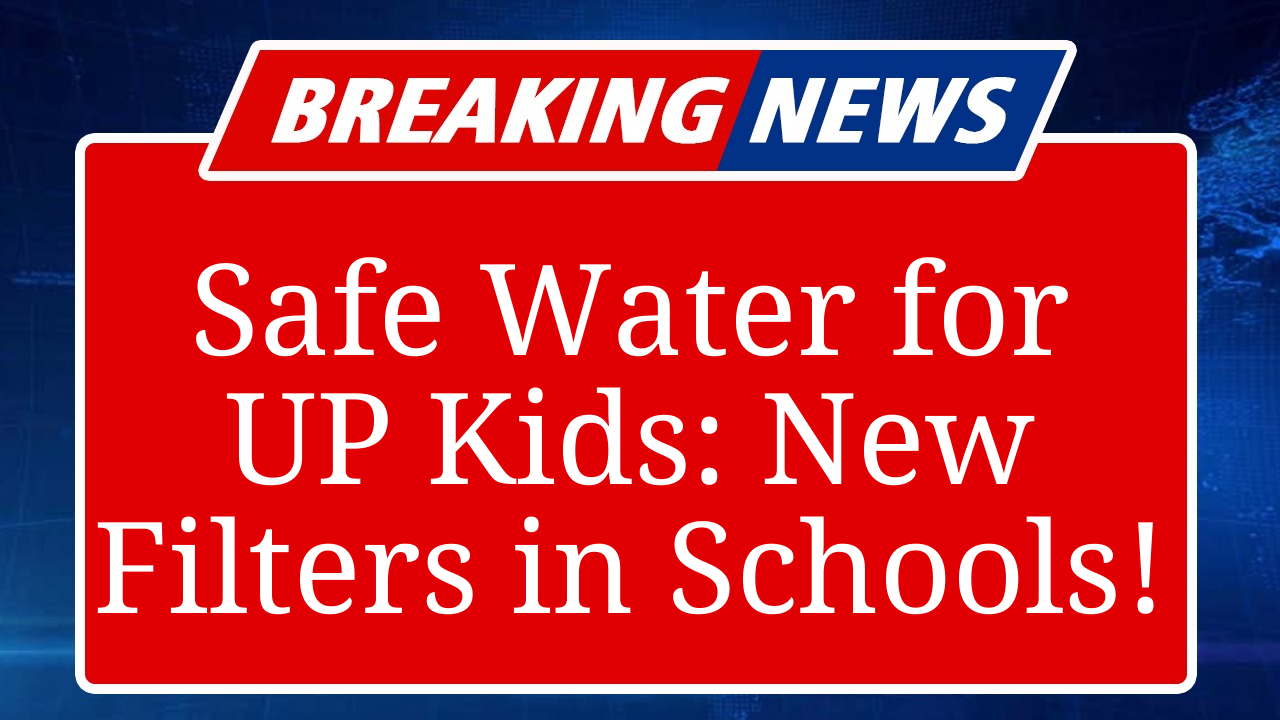“Uttar Pradesh’s schools are set to ensure safe drinking water with new advanced filtration systems. The initiative, backed by state and central schemes, aims to protect students from waterborne diseases and contaminants like lead. With installation underway, the program addresses long-standing water quality issues, prioritizing child health and academic focus.”
UP’s Bold Step Toward Safe Drinking Water in Schools
In a significant move to safeguard the health of students, the Uttar Pradesh government has launched an ambitious initiative to install advanced water filtration systems across schools in the state. Announced in August 2025, this program aims to provide clean and safe drinking water to millions of children, addressing persistent concerns about water quality in educational institutions.
The initiative, supported by a collaboration between the state’s Education Department and the Jal Shakti Ministry, targets both urban and rural schools. It draws inspiration from national schemes like the Jal Jeevan Mission, which emphasizes access to potable water. According to official statements, over 50,000 schools, including government and aided institutions, will receive state-of-the-art reverse osmosis (RO) and UV purification systems by mid-2026. The filters are designed to remove contaminants such as lead, bacteria, and heavy metals, which have been detected in water sources across the state.
Data from the Uttar Pradesh State Pollution Control Board (UPSPCB) indicates that 30% of schools in the state rely on groundwater sources, some of which contain elevated levels of arsenic and fluoride. A 2024 survey by the Central Ground Water Board found that 15 districts, including Varanasi and Gorakhpur, reported water quality issues impacting student health. The new filtration systems aim to mitigate these risks, ensuring compliance with the Bureau of Indian Standards (BIS) for drinking water.
The initiative also addresses the disproportionate impact on underfunded schools, particularly in rural areas. “Children in remote regions are more vulnerable to waterborne diseases due to outdated infrastructure,” said Dr. Anjali Verma, a public health expert based in Lucknow. The filters, which require minimal maintenance, are expected to reduce cases of diarrhea and other water-related illnesses, which the World Health Organization estimates cause 1.4 million deaths globally each year.
To fund the program, the state has allocated ₹500 crore, supplemented by central grants. The Education Department has prioritized schools with high student enrollment and those in districts with known water quality challenges. Installation began in July 2025, with 10,000 schools already equipped. The government has partnered with private firms to ensure timely deployment and regular maintenance, with a mandate for schools to test filtered water biannually.
The program has drawn praise from educators and parents alike. “Access to clean water will help students stay hydrated and focused,” said Rakesh Singh, a headmaster in Kanpur. However, some challenges remain. In districts like Bahraich, logistical issues have delayed installations, and local officials are working to address supply chain bottlenecks. Additionally, awareness campaigns are being rolled out to educate students on the importance of using filtered water over untested sources.
The initiative aligns with broader national efforts to improve water, sanitation, and hygiene (WASH) standards. Inspired by programs like Michigan’s Filter First law, which mandates lead-reducing filters in schools, Uttar Pradesh’s model could set a precedent for other states. Experts suggest that regular monitoring and community involvement will be key to sustaining the program’s impact.
Disclaimer: This article is based on recent reports, official statements from the Uttar Pradesh Education Department, and data from the Central Ground Water Board and World Health Organization. Information is sourced from credible news outlets and government websites. Readers are advised to verify details with local authorities for specific school-level updates.

